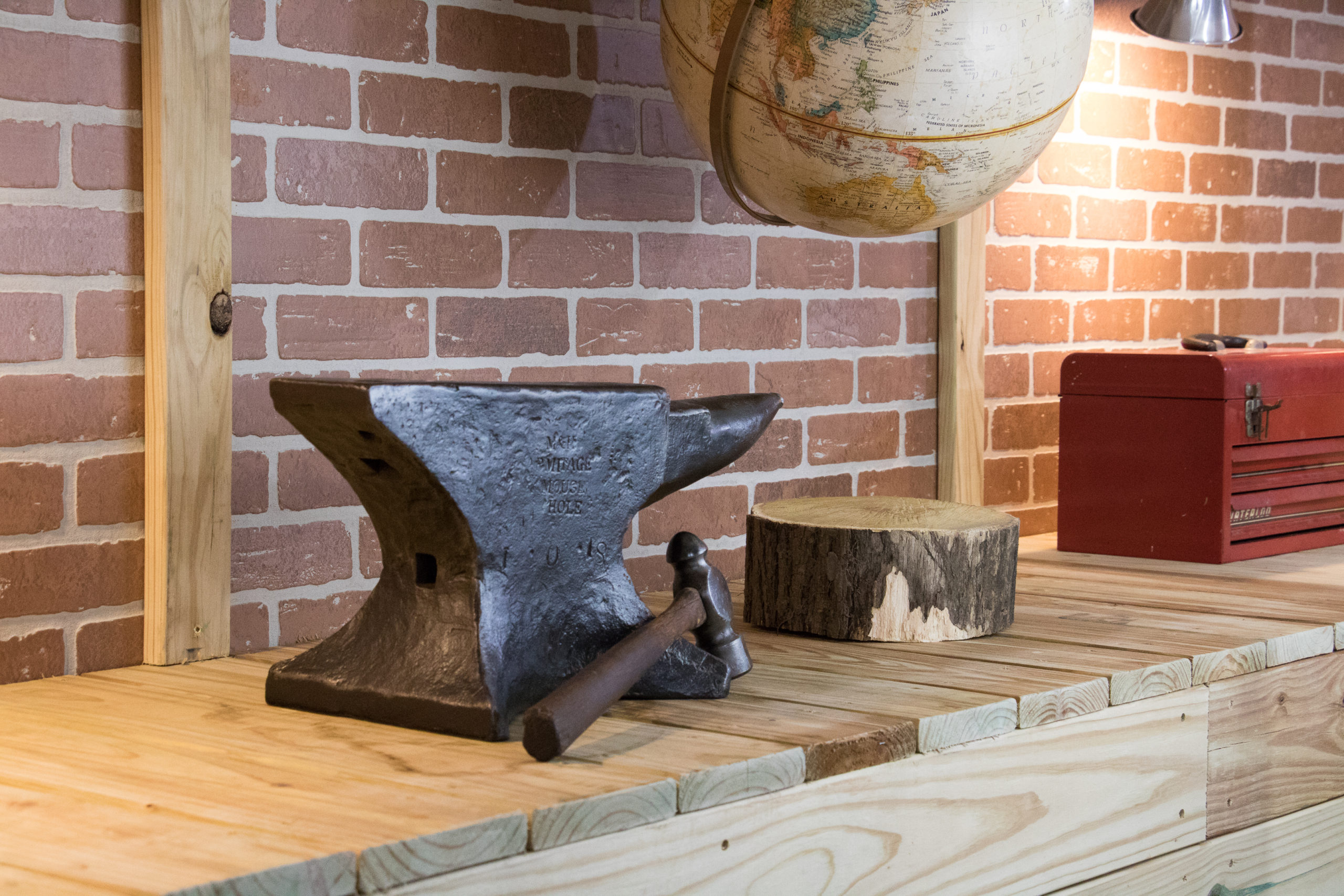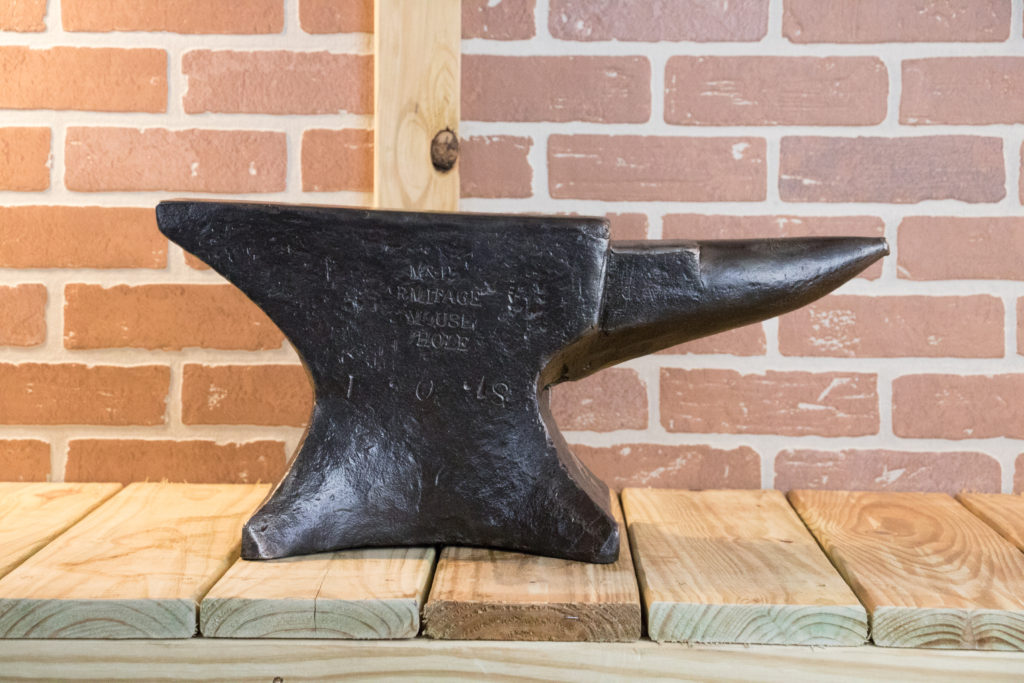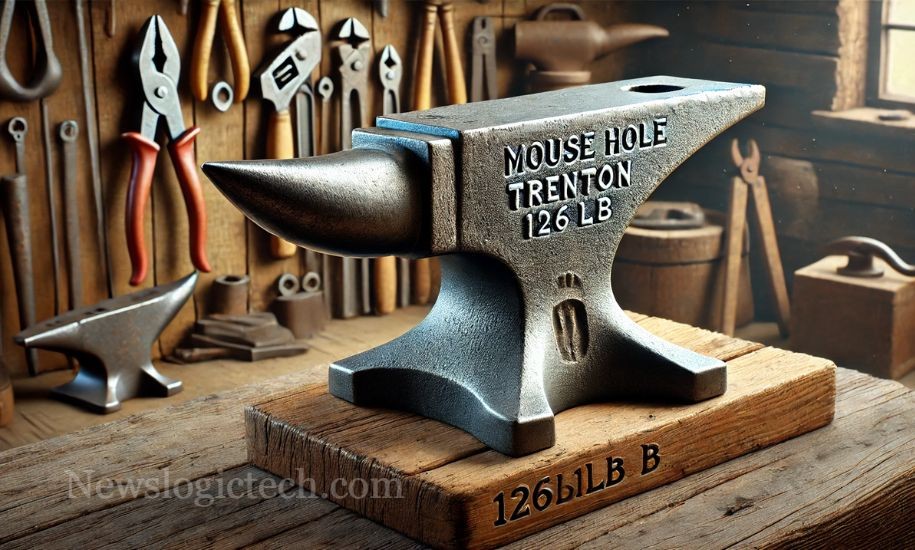Introduction
The world of blacksmithing and metalworking is rich with history, and one of the most iconic tools that craftsmen and collectors cherish is the anvil. Among the many historic anvil brands, the Trenton 126lb Mouse Hole Anvil stands out for its distinctive features and quality craftsmanship.
If you’re a blacksmithing enthusiast, collector, or hobbyist, understanding how to identify and value this specific anvil is essential.
In this article, we will provide a detailed guide on how to identify the Trenton 126lb Mouse Hole Anvil, its history, key features, and how it stands out in the world of anvils.
We will also cover its significance in blacksmithing, the factors that affect its value, and how collectors can accurately assess its condition.
What Is the Trenton 126lb Mouse Hole Anvil?
The Trenton 126lb Mouse Hole Anvil is a specific type of anvil produced by the Trenton Forging Company, a well-known manufacturer of anvils that was established in Trenton, New Jersey.
The company, which operated from the late 1800s to the early 1900s, made a wide range of high-quality anvils used by blacksmiths, farriers, and metalworkers for decades. Among the various anvils produced by Trenton, the 126lb Mouse Hole Anvil is particularly recognizable due to its unique design and the well-known “mouse hole” feature.
The 126lb refers to the weight of the anvil, which makes it a compact yet sturdy tool that is well-suited for light to medium metalworking tasks. Despite its relatively small size, the Trenton Mouse Hole Anvil is highly valued by collectors and blacksmiths for its durability, historical significance, and craftsmanship.
Identifying the Trenton 126lb Mouse Hole Anvil

If you’re looking to identify a Trenton 126lb Mouse Hole Anvil, it’s important to know the key characteristics that make this anvil stand out from others. Below are the most notable features and markings to look for when trying to determine if you have a genuine Trenton anvil:
1. Mouse Hole Feature
The defining characteristic of the Trenton 126lb Mouse Hole Anvil is the mouse hole, which is a distinctive round or oval depression found on the side of the anvil’s body.
The mouse hole was a design element that set Trenton anvils apart from other brands. It is believed that this feature was added to increase the strength and resilience of the anvil, as well as to provide a convenient space for tools or tongs.
The mouse hole is typically located near the heel or waist of the anvil and is a unique identifier for Trenton anvils. This hole is often oval-shaped, but variations can exist depending on the specific model and year of production.
2. Anvil Markings
Most Trenton anvils, including the 126lb Mouse Hole Anvil, feature a series of markings that can help confirm their authenticity. Here’s what to look for:
- Brand Mark: The Trenton Forging Company’s logo is often stamped onto the face or side of the anvil. This may include the word “Trenton” in bold lettering, sometimes accompanied by additional marks indicating the weight of the anvil (in this case, 126lb) and the model number.
- Weight Markings: As with many anvils, the 126lb weight will often be stamped somewhere on the anvil. This is typically found on the side or the heel of the anvil, making it easy to identify the model.
- Casting Marks: Trenton anvils often have casting marks, such as the pattern of the mold or the numbers that were used during the manufacturing process. These marks may not be immediately obvious but can help authenticate the piece.
3. Shape and Design
The Trenton 126lb Mouse Hole Anvil is designed with a classic shape featuring a broad, flat face and a relatively narrow heel. The horn is generally not as long as that of larger anvils, but it is well-formed and useful for shaping metal. Additionally, the face of the anvil is typically slightly convex, allowing for more versatile use during forging.
The steel body is cast to be incredibly strong, providing excellent resilience to the repeated hammering associated with blacksmithing. The horn has a smooth curve and is useful for bending and shaping metal, while the heel is flatter, ideal for precision work.
Trenton 126lb Mouse Hole Anvil History

To fully appreciate the Trenton 126lb Mouse Hole Anvil, it’s important to understand its history. The Trenton Forging Company was founded in the late 19th century and quickly gained a reputation for producing high-quality anvils for blacksmiths, farriers, and metalworkers.
At the time, Trenton, New Jersey, was a hub of industrial activity, with many foundries and metalworking factories producing tools for various trades. The company became known for its commitment to producing durable, reliable tools that could withstand the intense demands of metalworking.
The 126lb Mouse Hole Anvil is one of the more famous models from the Trenton Forging Company. While Trenton made many different models in various weights, the 126lb version is especially sought after due to its size, which makes it a good fit for hobbyists and small-scale blacksmiths. It was designed to be a tool that could handle moderate workloads while still being portable enough for smaller workshops.
Factors Affecting the Value of the Trenton 126lb Mouse Hole Anvil
For collectors and blacksmiths, determining the value of a Trenton 126lb Mouse Hole Anvil can be tricky, as several factors affect its worth. Below are the most important considerations when assessing the value of this historic tool:
1. Condition
The condition of the anvil is one of the most important factors influencing its value. A well-maintained Trenton anvil with minimal rust, chips, or cracks is worth significantly more than one that has been heavily abused or neglected. Here are some elements to look for:
- Face Condition: Check the face for signs of pitting, cracks, or deep indentations that could affect the anvil’s usefulness.
- Mouse Hole: The mouse hole should be intact and well-defined. If it’s damaged or altered, it may affect the authenticity and value of the anvil.
- Heel and Horn: Examine the heel and horn for signs of excessive wear or cracks.
2. Authenticity
As with any collectible, authenticity is crucial. A genuine Trenton 126lb Mouse Hole Anvil with the correct markings and features will command a higher price than a replica or incorrectly attributed piece. Make sure to verify the anvil’s origin through markings, castings, and expert verification if necessary.
3. Rarity
The rarity of the Trenton 126lb Mouse Hole Anvil also plays a role in its value. Some Trenton anvils are more common, while others are rare due to limited production runs or unique design features. If you own a rare or particularly well-preserved example, it could be worth considerably more than an average Trenton anvil.
4. Historical Significance
As a piece of blacksmithing history, the Trenton 126lb Mouse Hole Anvil holds historical value. The quality of craftsmanship, its use in the development of various metalworking techniques, and its connection to a renowned American manufacturer contribute to its desirability as a collector’s item.
How to Care for and Maintain a Trenton 126lb Mouse Hole Anvil

Proper care and maintenance are essential to preserving the condition and functionality of your Trenton 126lb Mouse Hole Anvil. Here are some tips to ensure that your anvil stays in top shape:
- Rust Prevention: Keep your anvil in a dry location and apply a thin layer of oil or rust-preventive coating to avoid corrosion.
- Cleaning: Use a wire brush to remove debris and rust. For tough spots, you can use a rust remover, but always be gentle to avoid damaging the surface.
- Regular Inspection: Check for cracks or significant wear periodically. If any damage is found, consult a professional for repair.
Conclusion
The Trenton 126lb Mouse Hole Anvil is more than just a tool; it’s a piece of history that embodies the craftsmanship and durability of American manufacturing.
Identifying this anvil requires attention to detail, including its mouse hole feature, markings, and overall design. Whether you’re a blacksmith looking for a reliable tool or a collector interested in acquiring a historic piece, understanding how to identify and assess the value of the Trenton 126lb Mouse Hole Anvil is essential.
With its rich history, unique design, and outstanding functionality, the Trenton 126lb Mouse Hole Anvil remains a valuable asset for both modern craftsmen and collectors alike.
By maintaining its condition and understanding its historical significance, you can ensure that this classic tool continues to hold value for years to come.



